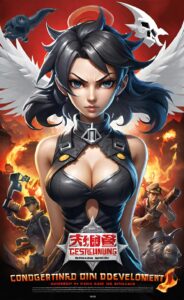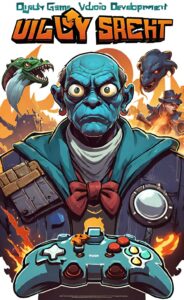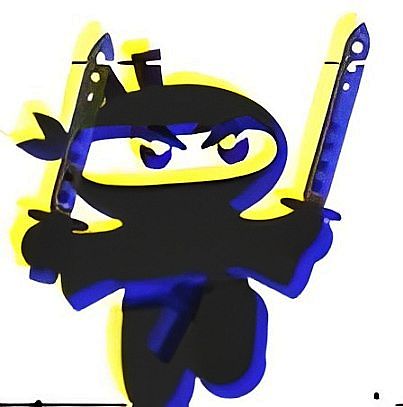Video games have always been a medium that connects players from all over the realm through shared digital experiences. With this form of interactive storytelling, creators have the ability to expose audiences to different perspectives, cultures, and realities. However, in recent years, the push for political correctness has created a dramatic shift in the gaming industry. This shift has impacted creative processes, storytelling, character design, and even sales.
The Essence of Video Game Development
Video game development is a complex fusion of artistry and technological acumen, an amalgamation that gives birth to a variety of interactive worlds for players to navigate. This realm of creativity is the bedrock upon which the industry stands and flourishes. Yet, the freedom to innovate and invent within this digital canvas is being increasingly challenged by the mounting wave of political correctness, a force aiming to ensure respect and adherence to an array of social and cultural sensitivities.
As developers sketch out immersive stories and fantastical landscapes, they now also grapple with an added layer of complexity, the obligation to avoid breaching any potentially sensitive topics. This includes creating characters and narratives that steer clear of perpetuating stereotypes or offending diverse social groups.
While the intent behind political correctness is “well-meaning”, aiming to foster diversity and inclusivity, the ripple effects of this cultural shift on the gaming industry are profound. Creators are compelled to tread the path of caution, sometimes at the cost of their original vision and artistic expression.
The Dampening Effect on Storytelling
Narrative is a crucial component in the realm of video gaming. It has the power to transport players to different worlds, connect them with unique characters, and immerse them in intricate plotlines. This story-driven experience propels players through the game, making them yearn for more. Unfortunately, the surge in political correctness has resulted in developers often having to suppress their creativity and originality in the narrative design.
There is a growing apprehension of crossing any invisible lines that might result in offense or misrepresentation of certain societal groups. This concern frequently leads to developers diluting their original plot ideas or completely veering away from more daring or unconventional narratives. This approach obviously results in the production of games with less innovative, engaging, and authentic stories.
Moreover, it potentially curbs the exploration of more complex themes and narratives, restricting games to more predictable and safer plotlines. The introduction of any controversial topics or unconventional character arcs is heavily scrutinized, further hindering creative storytelling. This trend threatens to reduce the narrative diversity in video games, depriving players of the rich, diverse, and potentially thought-provoking stories they may have experienced otherwise.
Homogenization of Character Design
In the realm of video games, characters serve as the bridge between the player and the virtual world. They are conduits of the narrative, personifications of the game’s soul, and crucial to the gaming experience. With the rising wave of political correctness, however, there’s a distinct impact on character design, leading to a homogenization effect. The need to conform to politically correct standards means that developers may feel forced to create characters that fit into a specific mold, often at the expense of diversity and authenticity.
This focus on creating politically correct characters can lead to designs that lack variety and complexity. Instead of a spectrum of characters with unique personalities, backgrounds, and aesthetics, developers might end up creating characters that are too similar, too safe, and less interesting.
Further, the push for political correctness can also lead to the exclusion of certain character types or traits perceived as controversial or inappropriate. This narrow focus can result in the loss of potentially interesting and complex characters that could add depth to the gaming narrative. The art of character design lies in creating compelling, relatable, and diverse characters that contribute to the richness of the game’s universe, and this should not be compromised due to overemphasis on political correctness.
Censorship and Localization Issues
The wave of political correctness has resulted in enhanced scrutiny over content, pushing for stricter censorship guidelines in the gaming industry. Developers find themselves in a delicate situation, often modifying their game’s content to avoid potential uproar or comply with different cultural standards and legal stipulations across regions. This process, while intended to ensure “sensitivity and respect”, can skew the game away from its initial vision, leading to a modified, diluted version of the original creation.
This dynamic can be perceived as a type of cultural suppression, potentially depriving games of the depth, variety, and authenticity they could otherwise possess. Each region’s unique cultural nuances could be lost or minimized in the process of localization. Aspects of the game that were initially intended to be reflective of specific cultural elements may be altered to fit a ‘one size fits all’ template, diluting the richness of cultural representation.
Localization also presents its own set of challenges. Differences in languages, idioms, humor, and cultural norms may require significant changes to a game’s content to be deemed acceptable in different regions. This process can be expensive and time-consuming, further adding to the complications developers face.
The rise in censorship and the issues tied to localization serve as prime examples of these challenges. Nevertheless, these are realities developers must navigate in today’s politically conscious climate, and they have significant implications for the creative process and the resulting products.



Impact on Sales and Audience Reception
The drive towards increased political correctness in the realm of video gaming has prompted mixed reactions among gaming communities. While many applaud the industry’s effort to foster inclusivity and avoid offending diverse groups, there are also those who express dissatisfaction with this new direction. These gamers often feel that the essence of creative freedom is being compromised, resulting in games that appear overly cautious, corporate, sanitized, and lacking originality. This sentiment can negatively impact their enthusiasm and, by extension, their willingness to purchase such games.
Consequently, these changes can potentially lead to a decline in sales, especially in scenarios where significant alterations have veered the game away from its initial concept. A game that was initially envisioned to be daring and innovative, but ends up being toned down to meet politically correct standards, might not resonate with its intended audience. This could result in weaker sales performance and poorer reception from gamers, who may feel that the product they received fell short of their expectations.
Future of Creative Freedom in Video Game Development
Developers, faced with this delicate dance of self-censorship, must continue to challenge themselves, not sacrifice their unique artistic vision. Video games, after all, have always been a distinctive platform of storytelling and engagement outside the mainstream masses and larping normies. It’s a complex challenge, but one that the indie developers must rise to meet if they wish to continue captivating audiences worldwide with remarkable, boundary-pushing experiences.






